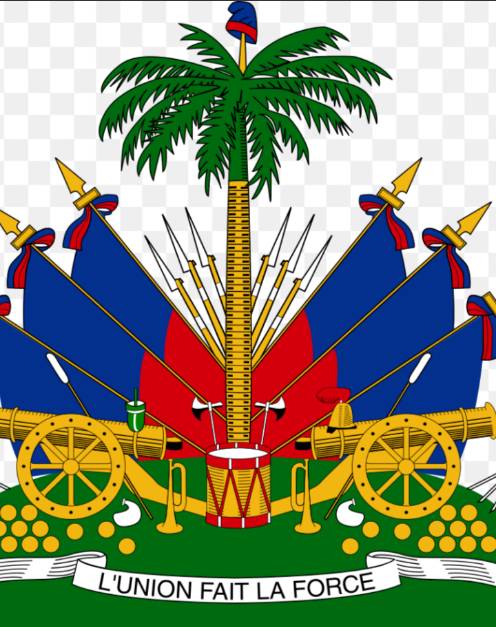As part of Haiti’s political transition, the new decree on the organization of the Conseil Présidentiel de Transition has been adopted, marking a significant step forward in the management of the multidimensional crisis that has plagued the country since the assassination of President Jovenel Moïse in July 2021.
The decree, which stems from the Political Agreement for a “peaceful and orderly transition”, aims to establish a collegiate governing body responsible for putting Haiti back on the path to dignity, democratic legitimacy and stability. The Conseil Présidentiel de Transition will exercise executive powers jointly with the Gouvernement de la Transition during this delicate period.
Composed of nine members, seven of whom have a deliberative vote and two have an observer role, the Presidential Council represents a diversity of political entities and civil society, with the principal mission of “guaranteeing respect for the Constitution and laws of the Republic.”
The President of the Council, chosen by consensus among its members, will be responsible for coordinating the Council’s actions and representing it in national and international bodies. Before taking office, Council members will swear an oath to faithfully observe the Constitution and laws of the Republic, according to the document, a copy of which was obtained by CTN.
The decree also provides for the organization of the Council into various sectoral cabinets responsible for overseeing the major projects of the transition, such as public security, economic recovery, the national conference and the constitutional question, among others.
In addition, measures have been taken to ensure accountability and transparency in government action, notably through the creation of an Organe de Contrôle de l’Action Gouvernementale responsible for monitoring the actions of the Executive Power, as stated in the document to be published in the official journal Le Moniteur.
This new mechanism marks an important step in the search for solutions to pull Haiti out of the deep crisis it is going through, by putting in place collective and transparent governance, based on respect for democratic principles and fundamental rights, according to the members of the presidential college in the “draft decree”.
In this document, the members of the presidential college give themselves a period of 22 months to carry out several important projects, including the organization of general elections in Haiti.
As a result, the “mandate” of the Presidential Transition Council will end on February 7, 2026, with no possibility of extension, marking a defined and supervised transition period.
The decree will come into force as soon as it is published, and will be published in Le Moniteur, the Republic’s official newspaper, shortly, according to a source close to the CP.
The draft decree was adopted following an agreement signed by the parties and sectors represented in the Presidential College.
The agreement, entitled “Political Accord for a Peaceful and Orderly Transition”, aims to restore constitutional order and set up a transitional government to guide the country towards democratic elections.
The agreement was adopted by representatives of political, economic, civil society and religious organizations, who reached a consensus during intensive talks held on April 4, 2024 in Port-au-Prince.
Under the mediation of CARICOM, these discussions resulted in an agreement that sets out the broad outlines of the political transition to come.
The agreement, which is structured around several detailed sections, sets out a clear vision and mission to guide the transitional government.
It provides for the establishment of three key governance bodies:
The Presidential Council
The Transitional Government and
The Organe de Contrôle de l’Action Gouvernementale (OCAG).
These bodies will be tasked with restoring national dignity, guaranteeing security, implementing constitutional and institutional reforms, and organizing free and credible elections.
The Presidential Council
The main responsibility of the Presidential Council, made up of nine members representing various sectors of Haitian society, will be to guide and supervise the transition.
It will ensure respect for the Constitution and laws, the stability of institutions and the continuity of the State.
The Transitional Government
The Transitional Government, headed by a Prime Minister, will be responsible for establishing conditions of security, reforming state institutions, preparing for elections and revitalizing the economy.
Particular emphasis will be placed on the fight against corruption and impunity, as well as on the establishment of a Justice, Truth and Reparation Commission, according to the document signed by all sectors represented in the presidential college, which has been forwarded to the Caribbean Community (CARICOM), which is acting as mediator to facilitate a solution to the Haitian crisis.
The “Organe de Contrôle de l’Action Gouvernementale” (OCAG)
The sector representatives on the Presidential College have also created a body to oversee government action.
The OCAG will play a crucial role in monitoring government action and ensuring that the agreement, laws and ethics in the management of public affairs are applied.
This agreement represents an important step towards resolving the political and institutional crisis that has shaken Haiti for several years.
The implementation of this agreement will require continued commitment and close cooperation between all parties concerned.
Haiti is at a turning point in its history, and this agreement should pave the way for the possibility of stabilizing a country that has been in crisis for too long.
The signatories to the agreement are:
August 30, 2021 Montana Agreement: Magali Comeau DENIS, Ernst MATHURIN , Jacques Ted ST-DIC and Fritz Alphonse JEAN
December 21, 2022 agreement: Saurel JACINTHE, Vikerson GARNIER, and Louis Gérald GILLES
Employers’ associations and groups of Haitian businessmen and women: Raina FORBIN and Pierre Marie Boisson
Collectif des Partis Politiques du 30 Janvier 2023: Clarens RENOIS, Liné BALTHAZAR, and Edgard LEBLANC Fils
Fanmi Lavalas political organization: Lesly VOLTAIRE
Parti Pitit Desalin: Weesley PIERRE and Emmanuel VERTILAIRE
Plateforme Résistance Démocratique (RED/EDE) and Compromis Historique political group: Sterline CIVIL, and Smith AUGUSTIN
Civil Society Group: Georges Wilbert FRANCK, Pierre Jean Raymond ANDRE, and Frinel JOSEPH
Rassemblement pour une Entente Nationale (REN)/Inter-Foi: René JEAN-JUMEAU, Jean Lucien LIGONDÉ, Régine ABRAHAM







